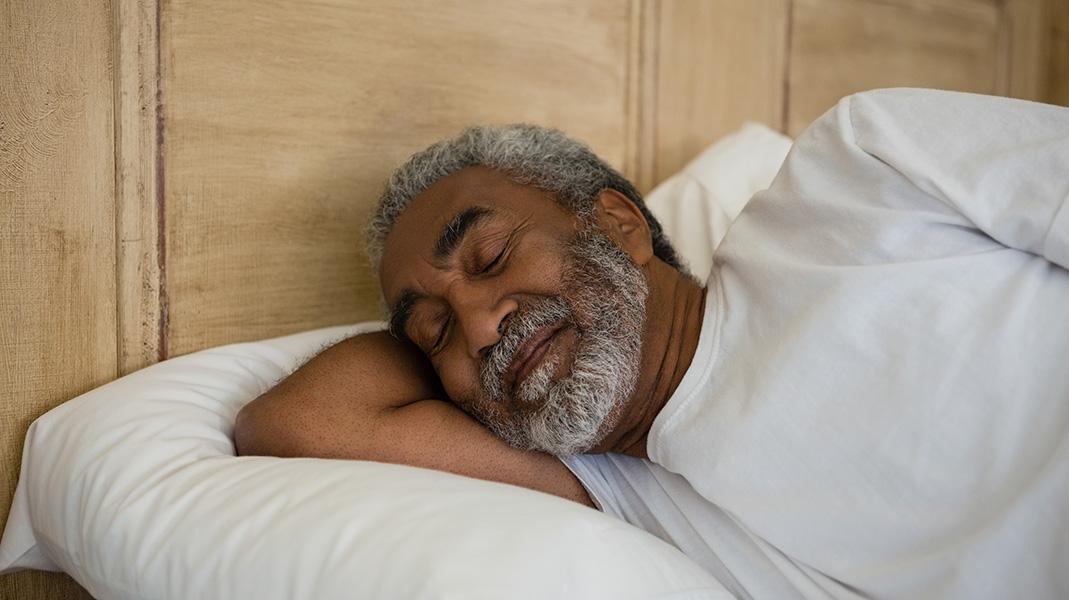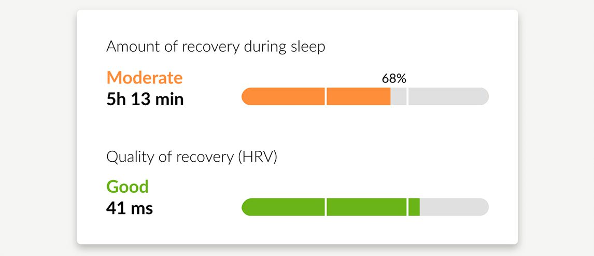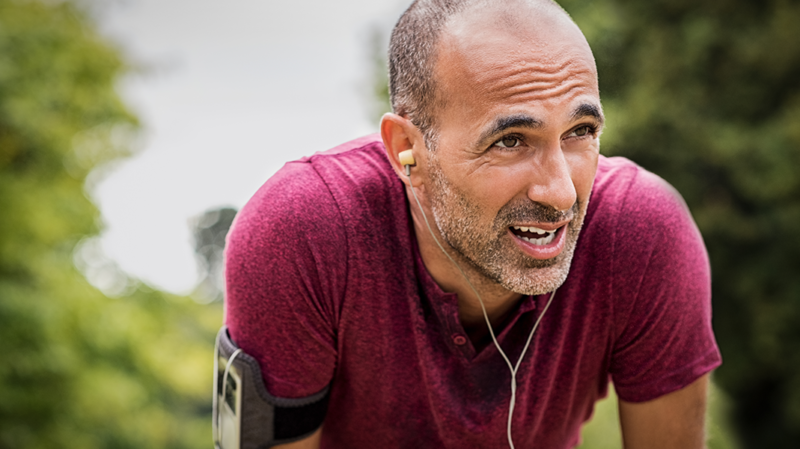
Sleep and recovery are not the same thing. You can sleep eight hours a night without having any physiological recovery. The key is getting enough good quality sleep. Firstbeat Life allows you to monitor how restorative your sleep is, and regular measurements show what factors support – or harm – your sleep quality.

The sleep score in the Firstbeat Life app shows how restorative your sleep was each night. The score is influenced by the amount and quality of recovery as well as sleep duration.
High-quality, restorative sleep is extremely important for good health and performance. It helps the body recover from stress, exertion, fatigue, balances the functioning of the nervous system, and strengthens the body’s resilience. On the flip side, poor-quality or insufficient sleep has a negative effect on attention, memory, and learning. And, in the long term, it predisposes us to things like cardiovascular disease and mental health problems.
So, what does restorative sleep actually look like? It has to be long enough, and the parasympathetic nervous system should be activated during it, causing the body’s activation level to drop and recovery to take place.
Adults are recommended to sleep for 7-9 hours, but just hitting those numbers isn’t enough if recovery when asleep is poor. Constantly feel tired even after sleeping for a long time? It’s likely caused by lack of recovery and poor-quality sleep. And people whose jobs are very stressful, or who exercise a lot, need to sleep even longer because the body needs more recovery time when physical or mental load is particularly heavy.

Firstbeat Life allows you to monitor your sleep duration and sleep quality regularly. It’s not just the amount of sleep that counts, the amount and quality of recovery has a big influence on your well-being.
Restorative Sleep is Built Through Daily Choices
Your daily choices have a big impact on your sleep. A regular eating rhythm (eating at regular times each day), sufficient physical activity and relaxation, and slowing down before bedtime support the functioning of the parasympathetic nervous system, and, therefore, promote restorative sleep. On the other hand, overly busy days, irregular eating times and little or no physical activity have a negative effect on sleep.
Finding the balance is key. For instance, high-intensity exercise in the evening elevates the body’s activation level in the short term and can reduce the quality of that night’s sleep. But, in the long run, good fitness goes hand in hand with better sleep so don’t suddenly stop exercising – just make better choice about what time of day you do it! Other factors that can explain a poor sleep result include lots of stress, physical or mental overload, a disturbed sleep rhythm, use of alcohol, other drugs or stimulants, and various illnesses.
Heart Rate Variability Detects Recovery During Sleep
Short-term stressors often reduce the amount of recovery during sleep, but don’t necessarily weaken the quality of recovery, which is typically weakened by longer-term stressors, an unhealthy lifestyle or a powerful, single stress factor, such as alcohol.
Firstbeat Life measures the quality of recovery using heart rate variability (HRV), which means the variation in time between individual heartbeats. HRV tells you about both the functioning of the heart and the autonomic nervous system. It is influenced by stress and lifestyle, but also, for example, physical fitness, genetics, and age. Firstbeat Life factors in the impact of your age when calculating results.
The restorative effect of sleep can be improved by ensuring sufficient sleep and physical activity and paying attention to healthy daily nutrition – and by avoiding excessive mental or physical load or stress. A positive attitude and mental well-being also promote high-quality sleep and quality of life. If you continue to struggle with sleep despite taking active steps to improve it, it’s important to contact a healthcare professional.
Would you like to know how you recover during sleep?
You might also be interested in

What Happens After Recovering from COVID-19? One Individual’s Data Story
The results of returning to typical exercise routines for one individual after suffering from Covid-19.

Are You Balancing Your Stress with Enough Recovery?
Stress has a negative connotation but, in reality, it’s not dangerous and you don’t need to avoid it. The important thing is making sure it is in proportion to your…

